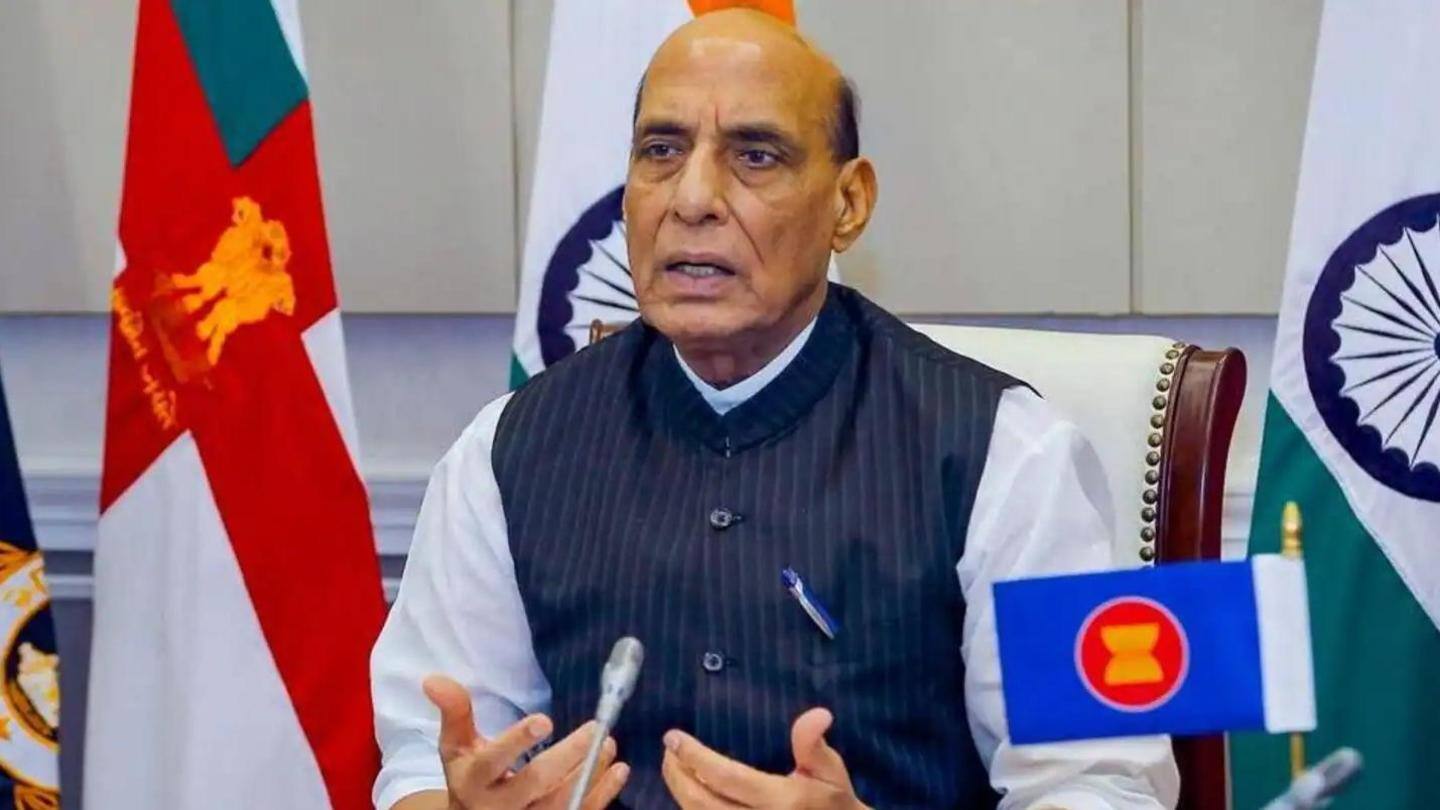
Armed forces want removal of AFSPA from J&K: Rajnath Singh
What's the story
Defence Minister Rajnath Singh on Saturday stated India's all three defense forces wanted the Armed Forces (Special Powers) Act (AFSPA) to be removed from Jammu & Kashmir soon.
He also emphasized that the Army plays a "minimal role" in internal security affairs.
The remarks came when Singh was speaking at a felicitation ceremony for the 1971 War veterans in Assam's Guwahati.
Context
Why does this story matter?
The AFSPA was recently repealed completely in 23 districts and partially in one district of Assam, 15 police stations in six Manipur districts, and 15 police stations in seven Nagaland districts.
Following this, parties in J&K called for the removal of the AFSPA in the union territory, too.
Notably, it was implemented in Kashmir in 1990 and in Jammu in 2000 to fight insurgency.
Statement
Singh on the controversial AFSPA, Army's role
"Some people believe...Indian Army doesn't want AFSPA to be removed. I want to say... Indian Army has a minimum role in the matters of internal security," Singh said on Saturday.
"Army only wants that soon the situation in Jammu and Kashmir should be completely normal and AFSPA can be removed from there too," the Union minister said while speaking at the ceremony in Guwahati.
Earlier statement
Singh supported repealing AFSPA in J&K earlier too
This isn't the first time Singh has talked about repealing the AFSPA in J&K.
During a J&K visit as the Union Home Affairs Minister in 2015, Singh stated the AFSPA could be repealed whenever the situation was "conducive."
Following the repeal of the law in parts of the northeast, J&K's political forces have also renewed their call for the abolition of the AFSPA there.
Quote
J&K's parties demanding the revocation of AFSPA
"Not a day passes when someone from the Centre or UT doesn't talk about the improved security situation in J&K. If that is really the case, then why aren't areas under AFSPA [in J&K] also being reduced?" Tanvir Sadiq, J&K National Conference's spokesperson, recently stated.
Do you know?
AFSPA provides broad powers, legal immunity to forces
The AFSPA's Section 4 grants special powers to forces—allowing them to open fire, make arrests without warrants, enter and search without warrants, and have immunity from prosecution. Section 6 of the Act, meanwhile, accords immunity to security personnel from legal proceedings.
Context
What do critics of AFSPA say?
Calls for abolishing the AFSPA in the Northeast grew louder after 14 civilians were shot dead by security personnel in Nagaland in a case of "mistaken identity" in December 2021.
The AFSPA's critics argue that the law shields officers who commit human rights violations and criminal acts since they cannot be tried in civilian courts without permission from the Centre.